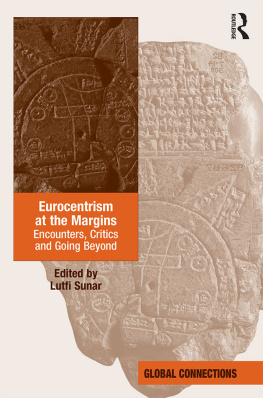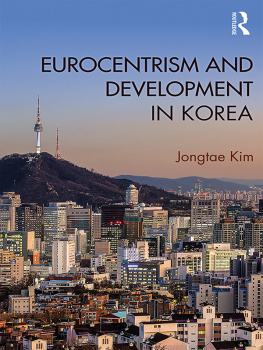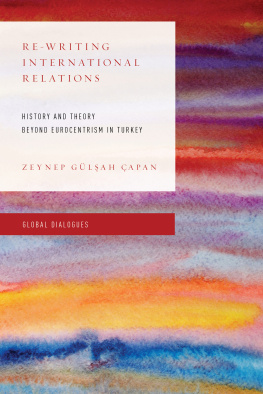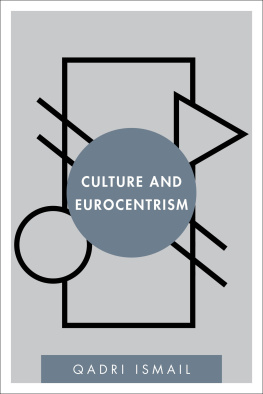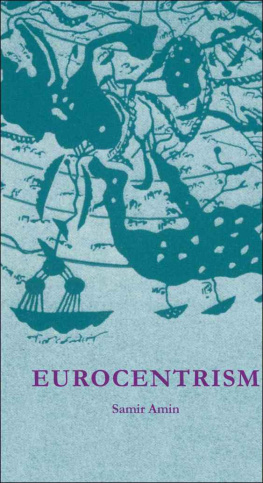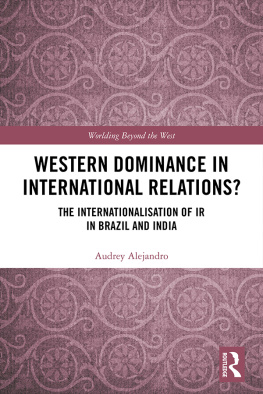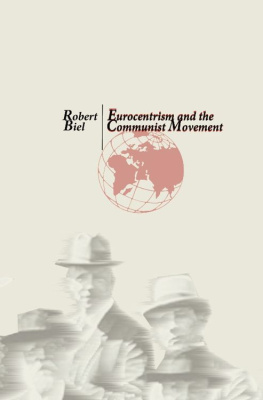Eurocentrism at the Margins
Eurocentrism remains a prevailing feature of Western-dominated social scientific perspectives, tending to ignore alternative views originating outside the West and thus maintaining a form of scholarly hegemony. As such, there is an urgent need to reconsider Eurocentrism in social science, to ask whether it constitutes an obstacle to understanding social problems and whether it is possible to go beyond Eurocentrism in the construction of reliable, more universal knowledge. At the same time, certain questions persist, particularly with regard to the extent to which recent revisionist challenges have really contributed to the surmounting of Eurocentric domination, and whether the constant repetition of the concept serves to reinforce it.
This book engages with the central problems of Eurocentrism in the social sciences, bringing together the work of scholars from around the world to offer a critique of this perspective from both European and non-European positions, thus shedding light on the binaries that often come into being in debates in this field. Thematically organised and addressing a range of questions, including Eurocentrism in historical studies, in the understanding of religion and civilisation and in the study of international relations, as well as in the institutionalisation and professionalisation of research and discourses on modernisation in the Middle East, Eurocentrism at the Margins will appeal to scholars with interests in knowledge production and circulation, and Eurocentrism and post-colonialism in the social sciences.
Lutfi Sunar is Assistant Professor of Sociology at Istanbul University, Turkey. He is the author of Marx and Weber on Oriental Societies and editor of Debates on Civilization in Muslim World.
Global Connections
Series Editor: Robert Holton, Trinity College, Dublin
Global Connections builds on the multi-dimensional and continuously expanding interest in globalization, focusing on connectedness and providing accessible, concrete studies across a broad range of areas such as social and cultural life, and economic, political and technological activities. Interdisciplinary in approach, the series moves beyond abstract generalities and stereotypes: Global is considered in the broadest sense of the word, embracing connections between different nations, regions and localities, including activities that are trans-national, and trans-local in scope; connections refers to movements of people, ideas, resources, and all forms of communication as well as the opportunities and constraints faced in making, engaging with, and sometimes resisting globalization.
For a full list of titles in this series, please visit http://www.routledge.com/series/ASHSER1306
Titles in the series include:
Global Inequalities Beyond Occidentalism
Manuela Boatc
Global Exposure in East Asia
A Comparative Study of Microglobalization
Ming-Chang Tsai
Violence and Gender in the Globalized World
The Intimate and the Extimate, 2nd Edition
Sanja Bahun and V.G. Julie Rajan
Global Culture: Consciousness and Connectivity
Roland Robertson and Didem Buhari-Gulmez
Glocal Pharma
International Brands and the Imagination of Local Masculinity
Ericka Johnson, Ebba Sjgren and Cecilia sberg
The Socio-Political Practice of Human Rights
Between the Universal and the Particular
Kiran Kaur Grewal
The Global Repositioning of Japanese Religions
An integrated approach
Ugo Dess
Eurocentrism at the Margins
Encounters, Critics and Going Beyond
Edited by
Lutfi Sunar

First published 2016
by Routledge
2 Park Square, Milton Park, Abingdon, Oxon OX14 4RN
and by Routledge
711 Third Avenue, New York, NY 10017
Routledge is an imprint of the Taylor & Francis Group, an informa business
2016 selection and editorial matter, Lutfi Sunar; individual chapters, the contributors
The right of Lutfi Sunar to be identified as the author of the editorial material, and of the authors for their individual chapters, has been asserted in accordance with sections 77 and 78 of the Copyright, Designs and Patents Act 1988.
All rights reserved. No part of this book may be reprinted or reproduced or utilised in any form or by any electronic, mechanical, or other means, now known or hereafter invented, including photocopying and recording, or in any information storage or retrieval system, without permission in writing from the publishers.
Trademark notice: Product or corporate names may be trademarks or registered trademarks, and are used only for identification and explanation without intent to infringe.
British Library Cataloguing in Publication Data
A catalogue record for this book is available from the British Library
Library of Congress Cataloging-in-Publication Data
Sunar, Lutfi.
Eurocentrism at the margins : encounters, critics and going beyond / by Lutfi Sunar.
pages cm. (Global connections)
Includes bibliographical references and index.
ISBN 978-1-4724-6644-0 (hardback : alk. paper)1.Eurocentrism. I.Title.
JZ1251.S86 2016
303.48'24dc23
2015035578
ISBN: 9781472466440 (hbk)
ISBN: 9781315580791 (ebk)
Typeset in Times New Roman
by Apex Covantage, LLC
Contents
Lutfi Sunar and Firdevs Bulut
Lutfi Sunar
Mustafa Demirci
Yasir Ylmaz
Syed Farid Alatas
Rigas Arvanitis and Sari Hanafi
Cokun Tatan, Bekir S. Gr and Zafer elik
Hasan Basri Yaln
Khosrow Bagheri Noaparast
smail alar
Defne Karaosmanolu and Kerem Karaosmanolu
Lutfi Sunar is currently an Assistant Professor at Istanbul Universitys Department of Sociology. His major research interests are classical sociological theory, orientalism, modernization, social change, and political economy. He has published various articles in international journals around this field. Among his recent books are Marx and Weber on Oriental Societies (Ashgate, 2014), Trkiyede Toplumsal Deiim (trans. as Social Change in Turkey, Nobel, 2014), and Sosyal Bilimlerde Yeni Eilimler (trans. as New Trends in Social Sciences, Nobel, 2015) and Debates on Civilization in the Muslim World (Oxford University Press, 2016).
Firdevs Bulut is currently a research assistant at the Scientific Studies Association, Istanbul. She is an MA student at Fatih Sultan Mehmet Waqf University, in the Department of Civilizational Studies. Among her research interests are comparative civilizational studies and comparative history of thought.
Mustafa Demirci is a Professor of History at Seluk University and head of the Islamic History Department in the same university. His areas of interest are comparative history of civilization, Islamic civilization, history of Muslims, and Turkish-Islamic history of thought. He has several books, mainly in Turkish, on the history, cities, science, and civilization of Seljuks. He has presented many papers at international and national conferences on the issue of civilization and encounters. He is currently mostly working on periodization of history, and he has a book called

